
Every stage of parenting brings new challenges, and some of the trickiest moments can come when parenting teenagers. Teens are going through a lot between finding their identity, dealing with hormones, wanting to be seen as adult while still technically being children, etc. But here to help us navigate this difficult stage is parenting expert and mom of two Anita Cleare. In her new book How To Get Your Teenager Out of Their Bedroom (out September 10), she gives actionable advice — including sample conversations — for parents to use to build better relationships with their teens.
Cleare spoke to CafeMom ahead of her book's launch to give us some tips for parenting when we get to that tricky teen stage.
More from CafeMom: Ask the Pediatrician: How To Start the School Year Strong & Prevent Illness in Children
Prepare for an empty nest early.

It's hard when kids leave home for college or whatever their next steps are when they turn 18, but Cleare was surprised to find that those empty nest feelings started long before her own children physically moved out.
"When they were about 14 … they didn't want to do things with me or spend as much time with me. I wasn't getting the emotional kind of warmth from them," she says.
We need to shift our mindset.
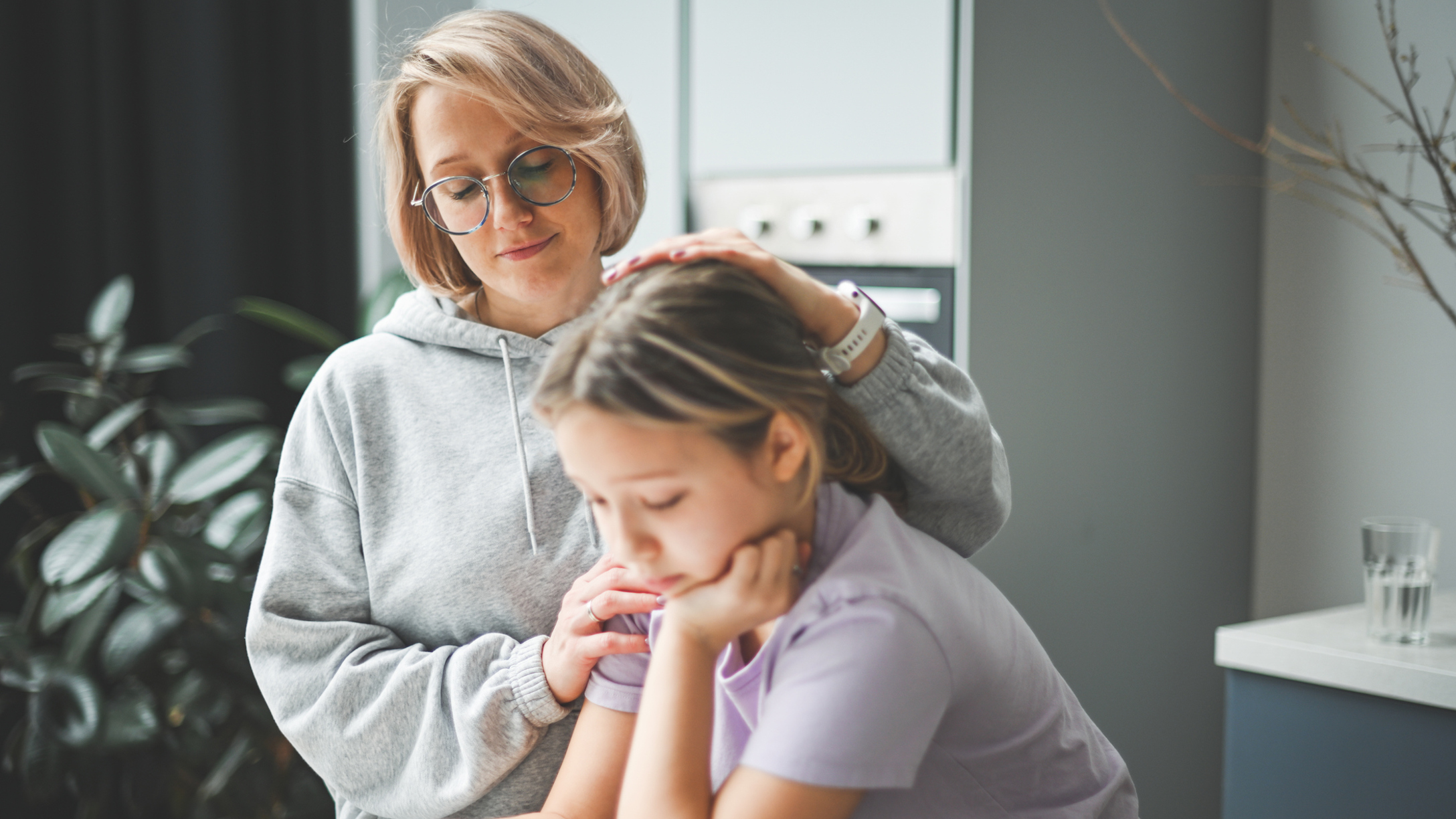
When she found herself missing those younger days, Cleare realized she needed to "confront" that feeling and learn to parent differently. "They're not going to go back to being a child. We can't continue just to treat them like children," she tells us. She wants parents to allow their teens to flex those independence muscles "to become the wonderful young adults we actually want them to become."
We should do that even if that means we as parents aren't "quite firmly in control" anymore.
Teens' bedrooms allow them to discover their identity.

Cleare's book acknowledges the reality that teenagers tend to spend a lot of time in their rooms away from the rest of the family. But she also wants us to know that it's a normal part of development.
"It's like their own separate domain and they can chat to their friends in there," Cleare says, adding that their bedroom also offers them an opportunity to make their own decisions, personalize their space, practice the way they look through clothes or makeup, etc.
More from CafeMom: Another Mom Lashed Out at Me for Breaking Her Rules at My Daughter's Sleepover
Allow them to practice independence.

Cleare says teens need to practice independence before truly leaving the nest. "I talk in the book about the four key drivers behind independence that teens need to practice, and one of those is separation … separation from family and from us," Cleare says.
That separation allows them to assimilate more with their peer group and start to discover their own identity outside of their family identity.
Let them to make their own decisions.
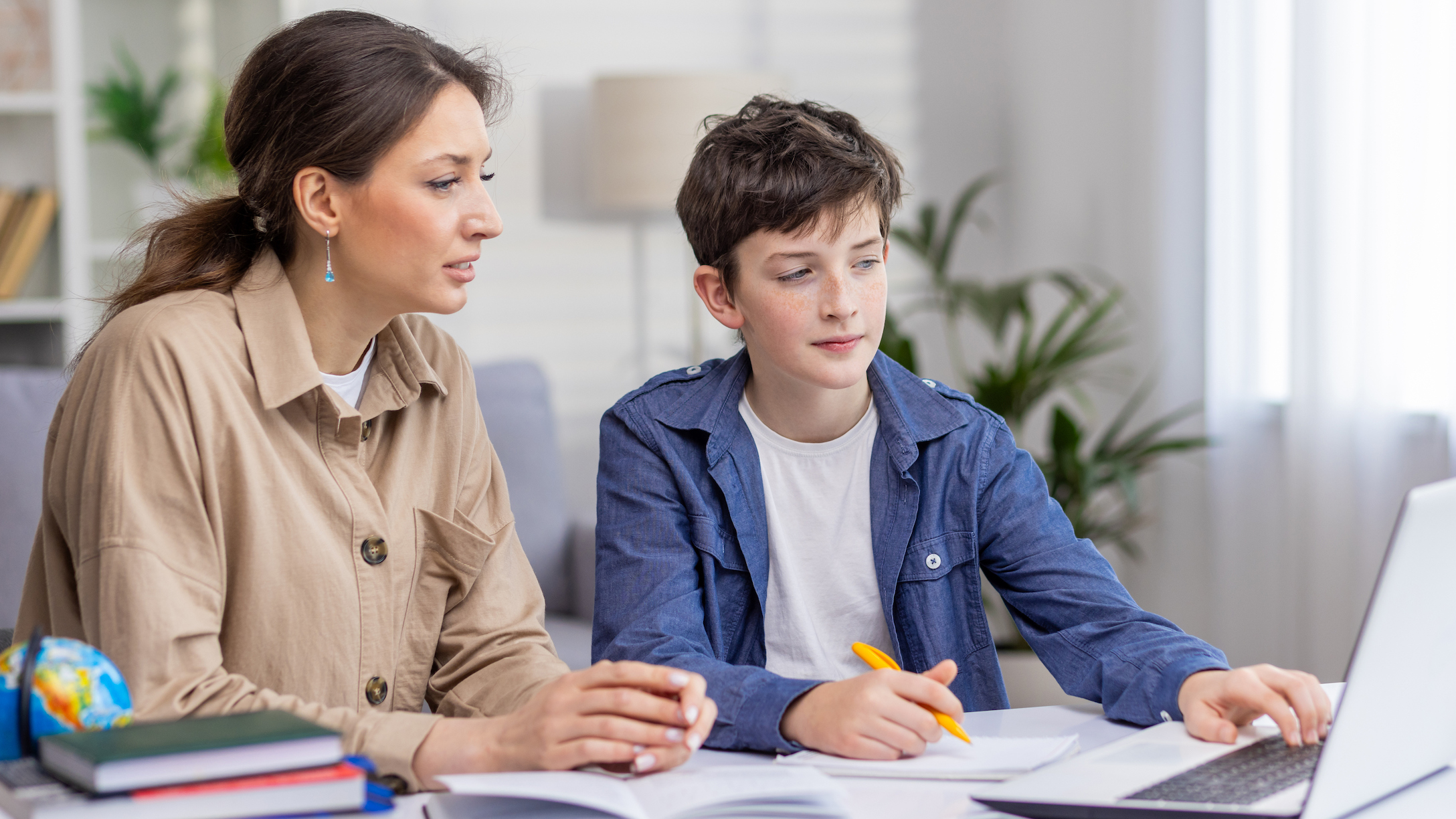
One day our teens will be adults making all the decisions for their lives, and letting them practice that while they're still at home can be really helpful. Cleare recognizes that it's difficult for parents to hand over that power — especially because teenagers don't always make the best choices. But as long as the choices they're making aren't putting them in danger, perhaps we can allow them to have a little more say in their lives.
"Maybe they do know themselves better than I do, because they're the one working on their identity," Cleare shares. "Maybe if they make this decision, they'll find out even more about themselves … That's really an empowering relationship-based approach."
Focus on building a lasting relationship.

Ultimately, Cleare says we should work on building a strong relationship with our teens so they feel like they can come to us if they're ever in trouble.
"If they feel like no matter how big the mistake is that they made, they can turn around to us and say, 'Look … I got this wrong. I'm in trouble.' And that we are not gonna kind of completely go over the top overreact and take away everything that matters to them in their lives — if we can have that relationship with them, actually we're supporting keeping them safe."
Model a positive relationship with technology.

One of the things that keeps teens in their rooms more is technology — be it gaming or social media, etc. For parents who are worried about their children spending too much time on their phones or online, Cleare recommends modeling a positive relationship with technology.
"You know, having times of the day maybe or places in your home where there is no technology — having bits of your routine as a family that squeeze out technology. I think that's really important," she says.
Engage in conversation about hard topics.

Although we may hope they're not engaging in activities like drugs or alcohol or sex, the reality is our teens may be exposed to these things. Cleare suggests broaching these topics with curiosity during more innocuous times like when giving them a ride somewhere.
For instance, she suggests, "If we can have some time with them when we are chatting about something, and we're like, 'Oh my goodness, I read the other day in the newspaper this statistic about teenagers and this particular issue. And I was really shocked by that. Does that shock you? Is that something that your friends are going through?'"
Cleare adds that by engaging them in conversations about topics rather than treating them like children, they're less likely to shut down.
Be a safe listener.

Sometimes teenagers really don't want to talk about what they're going through or how they're feeling. Cleare suggests that we encourage open lines of dialogue by simply being "safe listeners." She says, "The way we do that is through that really empathetic listening, not jumping into action."
As a parent, we naturally want to help solve problems for our kids, but with teens sometimes they just want to be heard and validated.
Don't trigger their defense mechanism.
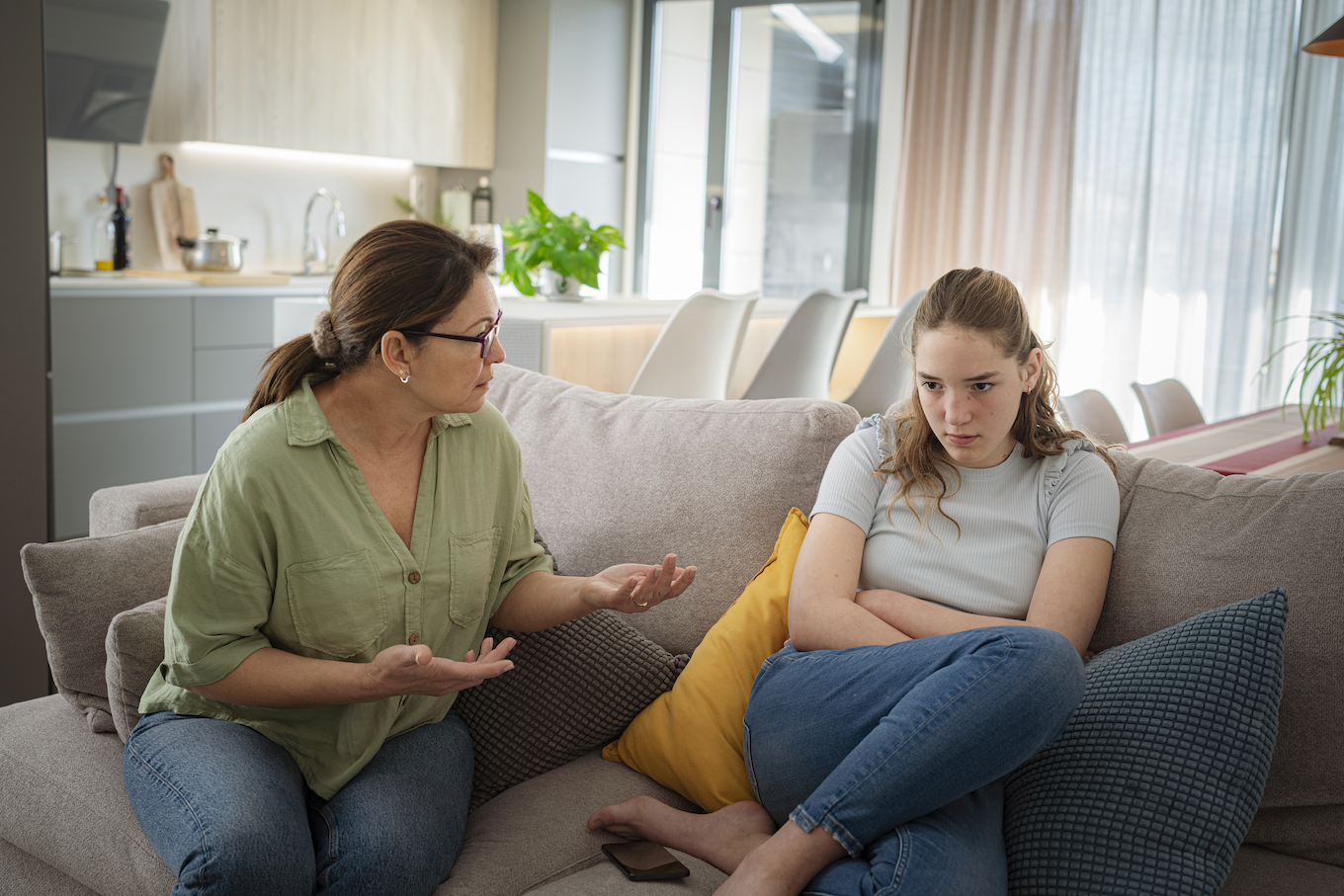
As an extension of being a safe listener, we also have to understand how sensitive teenagers can be if we try to propose solutions or question their feelings and independence. "The part of the brain that governs a threat response in teenagers is very strong. And anything that threatens their sense of independence … is likely to get a defensive, possibly an aggressive, or certainly an unhappy response from them," Cleare tells us.
She adds, "So not saying, 'Well, you know, I think you're wrong or you should do it this way.' But actually saying, 'Well, that's a really interesting viewpoint. I wonder if other people would have the same view as that.'"
Validate their emotions.
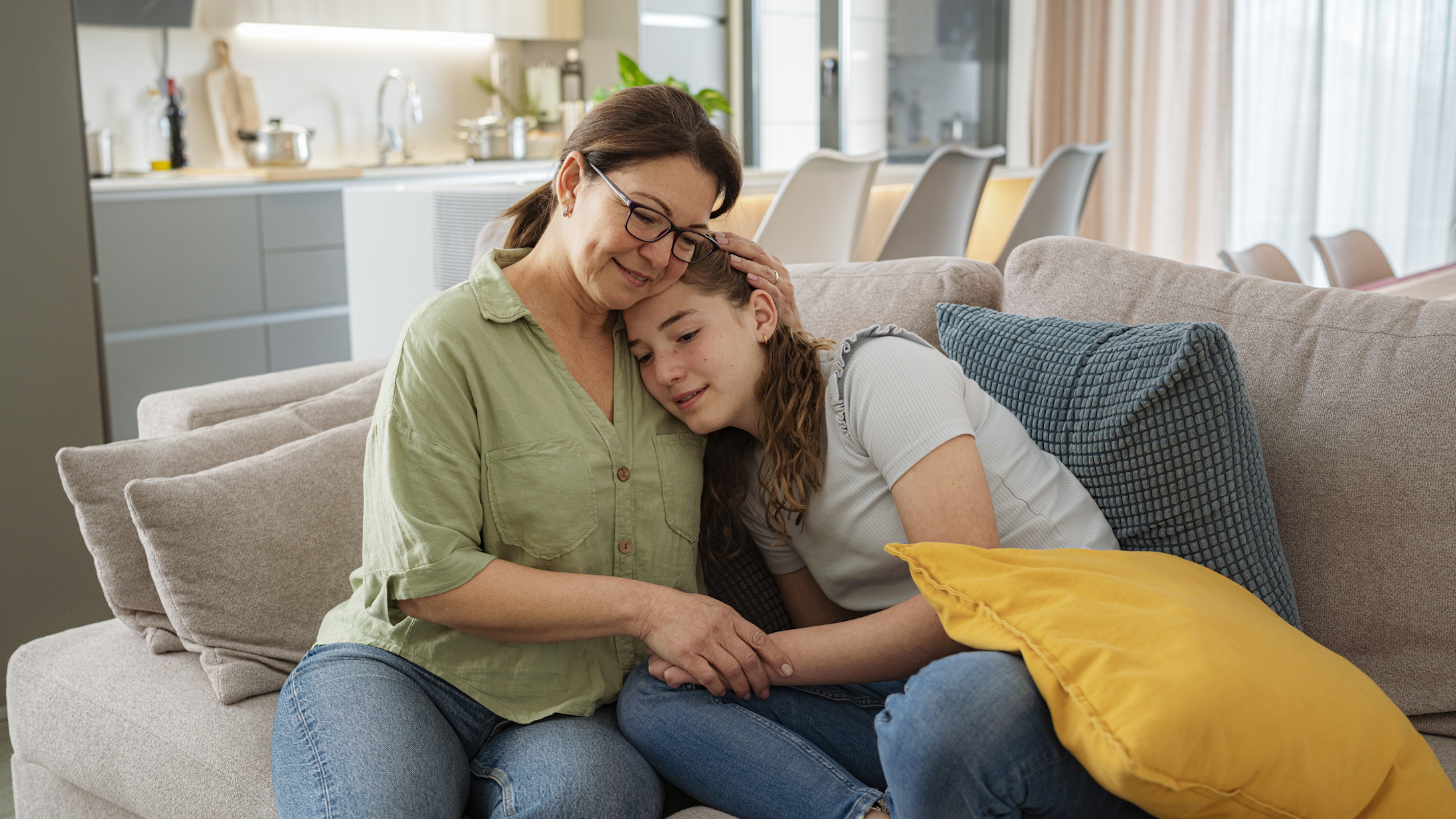
Cleare cautions parents not to blow off a teen's emotional response to something that we may consider small.
"We need to just accept that their reality; their emotions are utterly true and valid to them," she says. "When they are incredibly upset because of a really small trigger — perhaps something a friend has said or something about the way they look — and they are devastated by that, that is a genuine emotion, whether we agree with the trigger or not."
It just goes back to being an empathetic listener and validating them — even if we don't necessarily understand or agree with their emotional response.
Sometimes we need outside help.

If a parent is extra worried about their teen's emotional status or what they're dealing with, it may be worth involving a therapist our counselor to help. But broach that subject carefully.
"Sometimes teens don't want to talk to people," Cleare says. "But just thinking about, 'Well, what would make you feel better right now? Have you got any ideas? What have you tried so far?' And it might be gently easing them into the idea that support is helpful."
Bring teens on the journey.
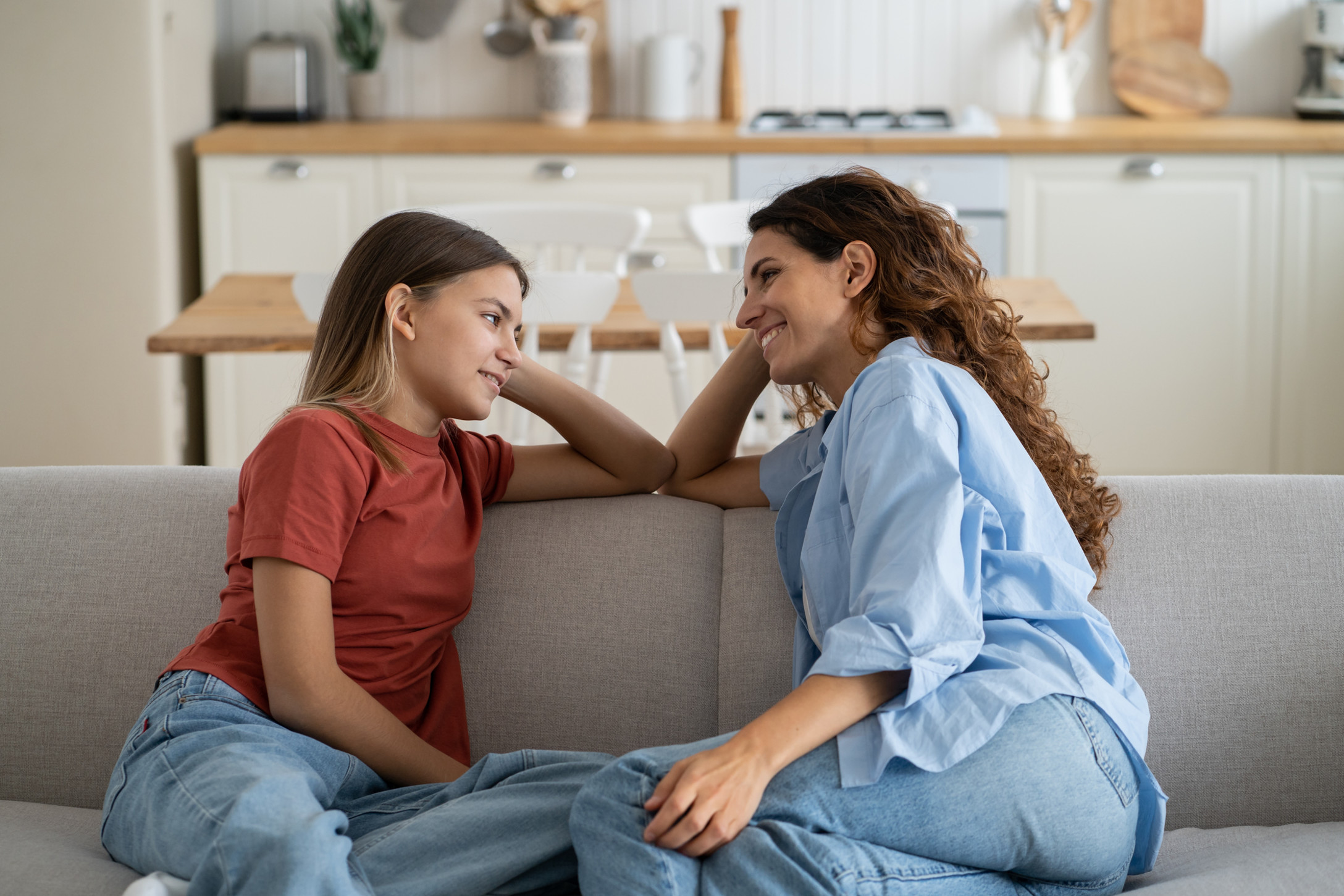
Cleare says letting the teen feel like they're leading the way can be hugely helpful in more delicate situations such as exploring therapy. "The best way to go about this is when they want to engage with help. When they don't want to engage with it, it's much harder for that help to work anyway," she shares. "Engage them gently so that they're coming along on that journey with you as much as possible."
We have to be the adults.

At the end of the day, though, teens are still kids — and that means we have to let a lot of what they say or do roll off our backs.
"Even when teens are withdrawing from us or actively sabotaging their relationship with us, we have to be the grown-ups," Cleare tells CafeMom. "That means managing ourselves and our emotions and doing a lot of compromising at a time when they're not quite so good at the compromising."
It won't always be this way.

Even in the hardest, most emotional moments, we just have to remember that teenagehood is a phase. Things will get better eventually. "The biggest thing we need is a lot of hope they will get there," Cleare says.
"They will turn into lovely young adults for sure. Even if they're being really obnoxious or difficult or having a hard time. We need a lot of faith, a lot of compromising, and just focusing on staying as close to them as we can through those times."
And we can get by for now with Cleare's new book and all her helpful advice.




